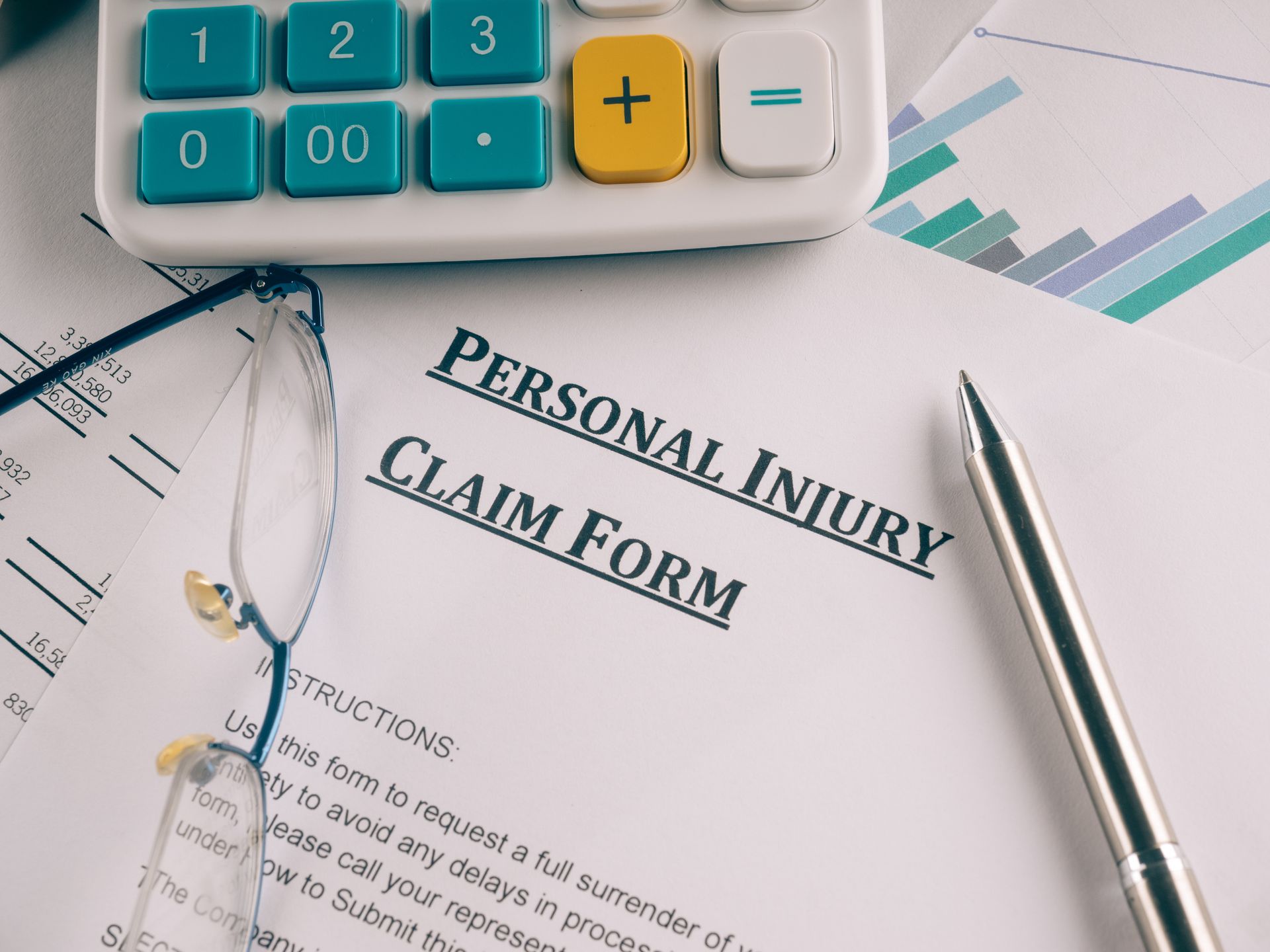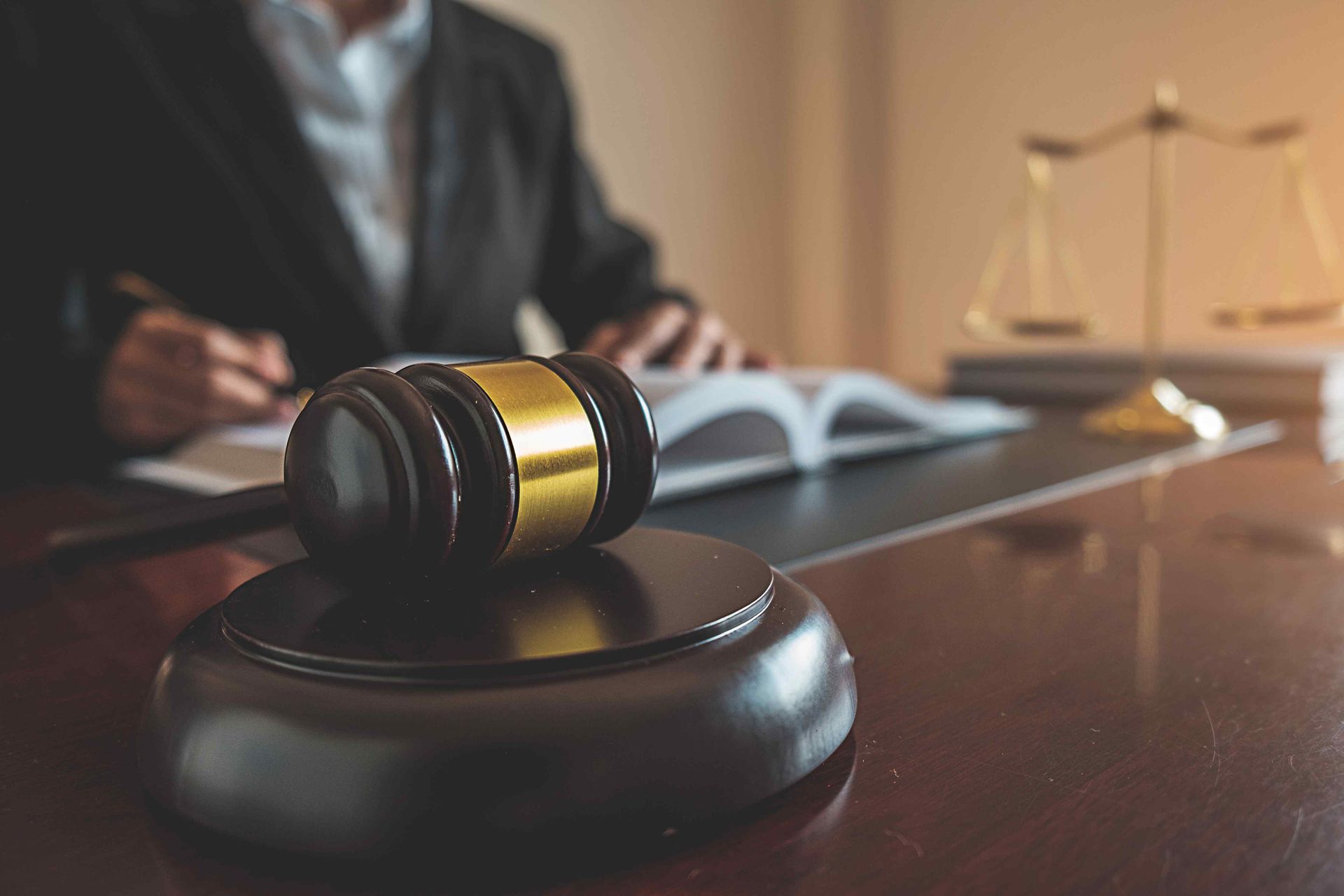Don't Call Christina Later, Call Christina Now
Follow us
What is Considered a Personal Injury Case?
Understanding Personal Injury Cases:
What They Are, Common Examples, and How to Seek Compensation
Accidents happen every day, and sometimes they lead to injuries that can change your life. When these injuries are caused by someone else’s actions, you may have a right to seek compensation through a personal injury case. But what exactly is a personal injury case, and how do you know if your situation qualifies? In this blog, we’ll explain what constitutes a personal injury case, provide examples of common types, and help you understand how the legal process works.

What is a Personal Injury Case?
A personal injury case is a legal dispute that arises when one person suffers harm due to the negligence or intentional actions of another. In simple terms, if you’re injured because someone else did something careless or harmful, you may have the right to claim compensation for your injuries.
Personal injury claims are typically handled in civil court, and the goal is to seek compensation for damages such as medical bills, lost wages, pain and suffering, and other expenses resulting from the accident or injury.
Common Types of Personal Injury Cases
Personal injury law covers a wide range of accidents and incidents. Some of the most common types of personal injury cases include:
Car Accidents
One of the most common types of personal injury cases is a car accident. If another driver’s carelessness or reckless driving causes you to get injured, you may have the right to file a personal injury claim. Car accidents can range from minor fender-benders to serious crashes with severe injuries. If you’re injured in an accident due to someone else’s fault, seeking legal advice can help you navigate the claims process.
Slip and Fall Accidents
If you slip or trip and fall on someone else’s property, you might be entitled to compensation through a slip and fall case. Property owners have a duty to keep their premises safe. If they neglect that duty, and you get hurt as a result, they could be liable for your injuries. Common causes of slip and fall accidents include wet floors, poor lighting, and uneven surfaces.
Medical Malpractice
Medical malpractice occurs when a healthcare provider fails to meet the required standard of care, causing harm to a patient. This could involve errors in surgery, misdiagnosis, improper treatment, or prescription mistakes. If a medical professional’s negligence leads to injury or death, you may have a case for personal injury.
Dog Bites
If you are bitten by a dog, the dog’s owner may be held responsible for your injuries. Many states have strict liability laws regarding dog bites, meaning the owner is automatically responsible for the harm caused by their pet. If the bite causes significant injuries, you can file a personal injury claim for medical costs and other damages.
Product Liability
Product liability refers to injuries caused by defective or dangerous products. If a product you use malfunctions and causes harm, the manufacturer, distributor, or retailer may be held responsible for your injuries. Product liability cases can involve anything from faulty car parts to dangerous toys, food products, or electronics.
Workplace Accidents
If you are injured while at work, it may be considered a workplace accident under workers’ compensation laws. However, if your injury was caused by a third party, like a contractor or equipment manufacturer, you may be able to file a personal injury claim against that party. These cases typically involve accidents like construction site injuries or accidents involving dangerous machinery.
Wrongful Death
If someone is killed due to the negligence or wrongful actions of another, the deceased’s family members may be able to file a wrongful death lawsuit. This type of case seeks compensation for the loss of life, emotional pain, and financial losses resulting from the person’s death.
The Legal Process for Personal Injury Cases
The process for filing a personal injury case generally follows several steps:

- Consultation: The first step is to consult with an attorney to discuss your case. They will evaluate the details and advise you on the best course of action.
- Investigation: Once you hire an attorney, they will investigate the accident, gather evidence, and work to build a strong case.
- Negotiation: In many cases, the insurance company of the responsible party will offer a settlement. Your attorney will negotiate on your behalf to ensure you are fairly compensated.
- Filing a Lawsuit: If a fair settlement cannot be reached, your attorney may file a lawsuit. This is often a last resort, as most personal injury cases are resolved before reaching trial.
- Trial and Verdict: If the case goes to trial, both sides present their evidence. The judge or jury will then decide if the defendant is responsible for your injuries and how much compensation you should receive.
- Consultation: The first step is to consult with an attorney to discuss your case. They will evaluate the details and advise you on the best course of action.
- Investigation: Once you hire an attorney, they will investigate the accident, gather evidence, and work to build a strong case.
- Negotiation: In many cases, the insurance company of the responsible party will offer a settlement. Your attorney will negotiate on your behalf to ensure you are fairly compensated.
- Filing a Lawsuit: If a fair settlement cannot be reached, your attorney may file a lawsuit. This is often a last resort, as most personal injury cases are resolved before reaching trial.
- Trial and Verdict: If the case goes to trial, both sides present their evidence. The judge or jury will then decide if the defendant is responsible for your injuries and how much compensation you should receive.

What Can You Recover in a Personal Injury Case?
The compensation you can recover in a personal injury case depends on the specifics of your situation. Common damages include:

- Medical Expenses: Compensation for doctor’s visits, surgeries, hospital stays, and any other related medical costs.
- Lost Wages: If your injury causes you to miss work, you may be able to recover wages you lost during recovery.
- Pain and Suffering: Compensation for the physical and emotional pain caused by the injury.
- Property Damage: If your property, such as your car, was damaged in the accident, you may be able to recover repair or replacement costs.
- Punitive Damages: In rare cases, you may also be awarded punitive damages if the defendant’s actions were particularly reckless or harmful.
How Do You Know if You Have a Personal Injury Case?
If you’ve been injured in an accident or incident and someone else is responsible, you may have a valid personal injury case. It’s important to contact an attorney to evaluate the specifics of your case. Personal injury laws vary from state to state, and a lawyer can help you understand your rights and what compensation you may be entitled to.

Personal injury cases can arise from many different types of accidents, including car accidents, slips and falls, medical malpractice, and more. If you’ve been injured because of someone else’s negligence, you may have the right to seek compensation for your injuries and damages. The legal process can be complex, but with the right attorney, you can navigate the system and get the compensation you deserve.
If you think you may have a personal injury case, don’t wait to get the help you need. Contact us today to schedule a consultation with an experienced personal injury attorney who can help you understand your options and fight for the compensation you deserve.
Quick & Reliable
We are available 24/7 to Guide You to Better Health.
CALL CHRISTINA NOW is here to help 24 hours a day, 7 days a week, offering free and compassionate support. When you call us, we'll listen to your concerns, understand the specifics of your accident, help you find medical care for your injuries, and connect you with a professional who can advise you on the legal aspects of your situation.
CALL CHRISTINA NOW specializes in assisting with Lawyer and Medical Accident matters. If you've been in a car, motorcycle, or truck accident—or any other kind of accident—contact us today for trustworthy support.
DISCLAIMER:
CALL CHISTINA NOW isn't a law firm and can't provide legal advice, but we can refer you to the right attorney who can.
All Rights Reserved | Call Christina Now
Copyright © Call Christina Now Offers All Rights Reserved 2025
View Our Privacy Policy | Terms & Conditions | Disclaimer
